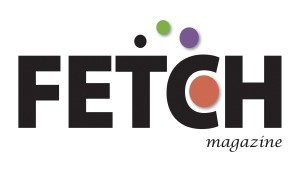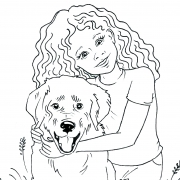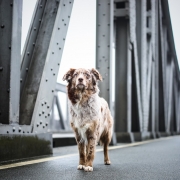Courageous, Fearless, Smart: The Czechoslovakian Vlcak
BY NASTASSIA PUTZ, PUBLISHER
One of the most independent breeds when it comes to working breeds is the Czechoslovakian Vlcak (pronounced like Vull-check). These beauties are also known as the Czechoslovakian Wolfdog and are not for the faint of heart. This hearty, intelligent, loyal and active dog is not recommended for first-time dog owners. So like the song, “Waterfalls” by TLC suggests, “Please stick to the rivers and lakes that you’re used to” or in this case dog breeds.
But for those seeking out an adventure and a challenge, this could be the dog you’ve been looking for. Dawn Ziarkowski, president of K9 Country Club in Waukesha, refers to this breed as the “Velociraptors of the dog world.” Their faces are so expressive. “You can actually see them thinking and figuring things out,” says Dawn with a chuckle. Just like when the raptors are testing the fences in “Jurassic Park.” Yikes!
An Uncanny Intelligence & Notable Bond
The key to understanding the Vlcak breed is learning how they communicate. “This breed’s intelligence is beyond anything I have ever experienced,” says Dawn. As a kennel owner, she has experienced a variety of breeds. “Their ability to think independently is both amazing and challenging,” she says. And now as a Vlcak owner herself, her dog Loki keeps her on her toes. He likes to check on her to see if she is busy. Then when he feels she is preoccupied, he will sneak away to go do bad things. Busted!
“He opens up the refrigerator and helps himself to hot dogs!” declares Dawn’s husband Jim Ziarkowski, owner of the K9 Country Club. Jim admits that it was not only the look of this breed that captivated him at first but also their intelligence. When their dog Loki wants to go outside, he will nudge the doorknob with his nose so Jim can hear the clink sound it makes. Not the typical dog-like behavior, however it is Vlcak-like behavior.
Vlcaks are currently used throughout Europe and in the US for search and rescue, tracking, obedience, agility, drafting, herding and working dog sports.
Alex Kaftan, dog owner and Vlcak enthusiast (and now friend residing on the same property as the boarding facility), was the person who originally introduced the Ziarkowskis to the breed in 2018. Alex was in need of the right boarding facility for his dog Mars—a known “flight risk.” So Alex decided to start out with a two-day trial period prior to leaving for a whole month, and by default, thus began an adventurous journey for the Ziarkowskis into the Vlcak world.
Alex notes the bond this breed has with their humans is impossible to briefly describe. Within just two hours of being left at the kennel, his dog Mars ripped through a window screen and ran for the road. Jim, who was conveniently doing dishes when he heard the noise, dropped everything to go chase Mars through a cornfield. Dawn notes that Jim frantically called her and told her to call Alex. Upon her calling Jim back, Mars stopped dead in his tracks when he heard Jim’s ringtone of wolves howling. Luckily, Mars was recovered because of Jim’s unique ringtone.
That was just the beginning. Mars did return for his month-long stay as intended. For the Ziarkowskis, this became an eye-opening experience. After about two weeks, the girl that helped out at the kennel came to start her shift and noticed Mars was staring at her through the glass door from inside the office. There was also now a hole next to the window air conditioner. Apparently, Mars had figured out how to unlatch his door to the kennel, open the door that lead to the hallway, jump over a gate in the hallway, chew through the accordion-type material that secures the air conditioner to the window and went outside. Hence, the need was established to “Marsproof” the kennel going forward.
Vlcaks are extremely devoted to their owners and canine packmates. As an Italian citizen now living in Wisconsin,
Alex says Italians refer to this unique bond as “morbidly attached.” In fact, Mars has extreme separation anxiety (if you haven’t figured that out already) and has broken out of several kennels, apartments and houses in search of Alex. They are not at all like the “I just met you but loooove you!” dog.
Fun Fact 1: Mars will grab Alex’s wrist with his mouth, take him from his bedroom to the kitchen and then from the dog bowl to the sink in order to fill it up for his daughter Ceres (Alex’s other Vlcak). Both in photo above.
An Experimental History & Active Lifestyle
Originally bred in Czechoslovakia in the 1950’s to work border patrol, this breed evolved from crosses between German Shepherds and Carpathian Wolves and was essentially the result of a biological experiment that ended in 1965. In 1982, the Vlcak became a recognized national breed known for its versatility and ability to survive harsh elements. Loki’s history began in the Czech Republic from a breeder (Hana Kaufmanová OdÚhoště), but it surely didn’t end there. Loki is now a UKC Show Champion, AKC-registered, a movie star (“Deep Woods”), beloved Wisconsinite and FETCH cover dog.
The AKC says Vlcaks are great for tracking or trailing sports or as a companion for active owners who enjoy spending time doing outdoor activities such as biking, running or hiking. Jim warns that they need daily exercise, mental stimulation and extensive socialization. Give your highly-energetic Vlcak a job that changes often, has purpose and is not boring. Alex warns possible new owners that this breed can be very challenging and will require lots of attention, work, patience and much willingness to learn on the owner’s part. “But it is worth it a thousand times over.”
Tips For Boarding One
Precautions should be taken when boarding them. “Because of their intelligence, this breed can scale a chain link fence like an expert rock climber. They will effortlessly climb and leap over fencing as high as 6 feet if there is no deterrent at the top,” says Dawn. Full disclosure to the boarding facility about the breed’s tendencies is HIGHLY recommended. To properly and safely board a Vlcak, the person responsible must know everything up front. For instance, if the dog can open doors or if he/she is a climber, this is all important information to disclose.
• Outside chain-link kennels must have complete fencing over the top and secured with metal bindings (not plastic as they will chew through it) to prevent escape. Fencing should go to the ceiling on inside and outside of kennels, or they will squeeze through impossible spaces and escape.
• Any area where the dog is kept that has a gate would need to have a padlock. While you do not need to lock it, the lock on the door prevents it from being moved.
• Unless fenced-in area for play is completely enclosed, a Vlcak should be tethered by a long lead to prevent fence climbing and escape.
• Cables to open or close kennel run doors must be removed. These dogs know how to pull the cable to open the door and go outside all by themselves.
Fun Fact 2: According to Dawn, the hardest thing she has learned about this breed is that if one would escape, you need to run away from them and not at them. This goes against our instinct to run after the dog to recover it. The Vlcak’s strong bond with the owner is what makes them come back to you.









